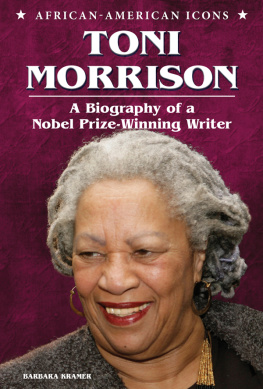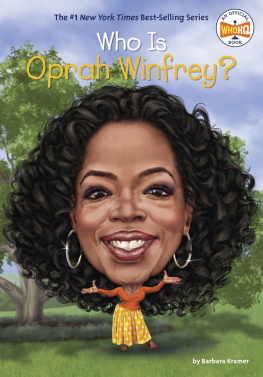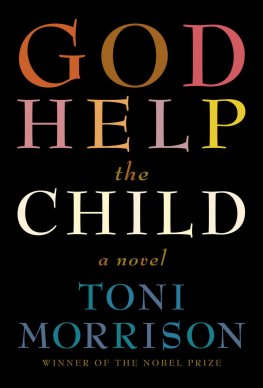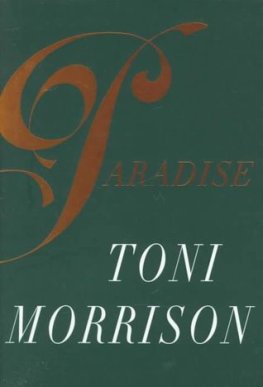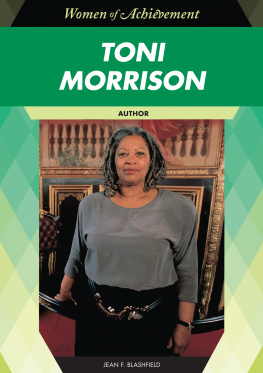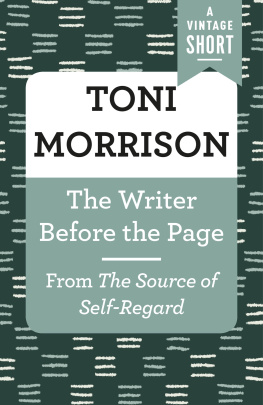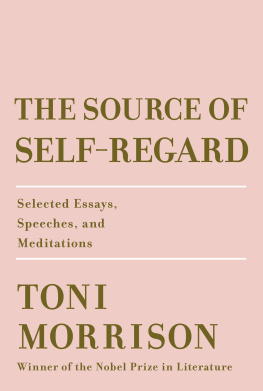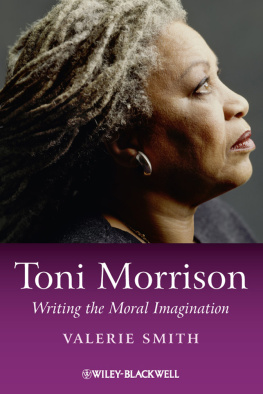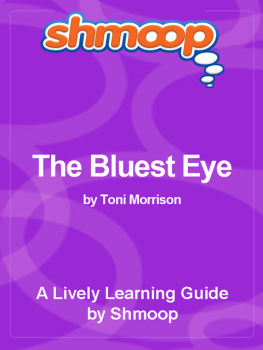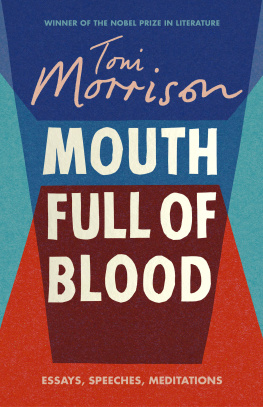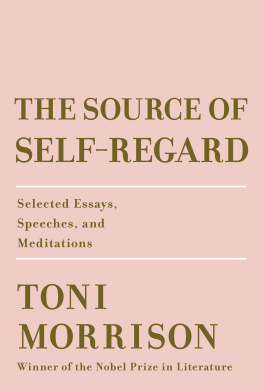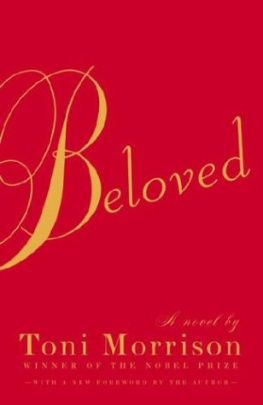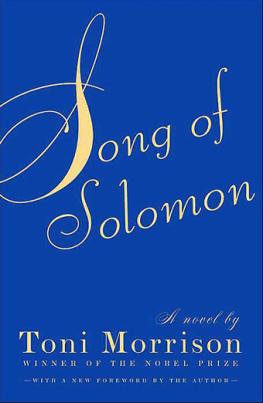A Biography of a Nobel Prize-Winning Writer
In October 1993, Toni Morrison became the first African American to win the Nobel Prize in literature. The author of such notable works as Beloved: A Novel, Song of Solomon, Sula, and Jazz, Morrison expresses the beauty of African-American history, cultural beliefs, and folklore in her writing. She has taught at several universities, as well as being the author of novels, short stories, essays and a play.
ABOUT THE AUTHOR
Barbara Kramer has worked as an editor, proofreader, and teacher in addition to being a professional writer. A graduate of Mount Mercy College, she is also the author of Alice Walker: Author of The Color Purple and Amy Tan: Author of The Joy Luck Club for Enslow Publishers, Inc.

There was excitement on the Princeton University campus. It was October 7, 1993, and an important announcement had just been made. Toni Morrison, one of Princetons own faculty members, had been selected to receive the worlds highest honor for a writerthe Nobel Prize in literature. Reporters were on campus hoping to get a statement from Morrison. Nevertheless, for Morrison, it was business as usual. The reporters had to wait until she was finished teaching her class.
Morrison had started her day at 4:30 A.M. when she got up to write. She was startled when the phone rang about 7:00 A.M. I knew it was terrible news, Morrison remembers. And when a friend of mine on the other end said, Did you hear? then I knew it was something awful.
It turned out to be just the opposite. Her friend had already learned that Morrison was to be awarded the 1993 Nobel Prize in literature, and she was calling to congratulate her.
Later that day Morrison received an official call from the secretary of the Swedish Academy confirming that she was indeed the winner. She still had trouble believing the news. The secretary told her a letter was on the way. I said, Why dont you send me a fax? Morrison recalled. Somehow, I felt that if I saw a fax, Id know it wasnt a dream or somebodys hallucination.
The award is named for its founder, Alfred Nobel, a Swedish scientist. Awards are given annually in the categories of physics, chemistry, medicine or physiology, literature, and peace. Morrison was the first African American to win in the area of literature. In a statement released through her publisher, she said, Winning as an American is very specialbut winning as a black American is a knockout.
Two months later she traveled to Stockholm, Sweden, to receive the award. She arrived on Monday, December 6, after flying through the night. Winter days are short in that northern country. The sun had risen at 8:45 A.M. and had already set by 3:00 P.M. , but there was hardly time to notice the lack of sunlight. Organizers for the Nobel Prize committee had planned a weeks worth of events, including dinners, concerts, and press conferences.
On Tuesday, Morrison had lunch at the American Embassy. That afternoon there was a police escort to take her to the Swedish Academy where she was to give her Nobel lecture. Morrison wore a black gown for the occasion. It had sequins that reflected light from the thirteen chandeliers that decorated the hall.
She began her lecture with the words generations of children have grown up hearing: Once upon a time. She spoke slowly, rhythmically, telling a story about a woman who was both blind and wise.
As she spoke, there was a curious rustling noise coming from the audience of about four hundred people. It was the shuffling of paper. Copies of Morrisons lecture had been handed out in advance. Some of the people in the audience were reading along with Morrison as she talked, not wanting to miss a single word. Morrison spoke for half an hour and then was rewarded with a standing ovation.
The actual presentation of the award took place on Friday evening. The festivities began with a trumpet fanfare and a procession led by Toni Morrison, who was escorted by the king of Sweden.
In 1993, the Nobel Prize in literature had a monetary value of $825,000. Reporters asked Morrison what she would do with the money, but she said she did not know. This is new to me, having to decide what to do with money, she joked. I have no history of having to make such decisions.
Morrison had made her mark in the world of literature as an editor, a teacher, and a writer. Her first novel, The Bluest Eye, told the story of an African-American girl who prayed every night for blue eyes. She associated blue eyes with beauty. The book was published in 1970. Five other novels followed, including Sula; Song of Solomon; Tar Baby; Beloved, which won the Pulitzer Prize in 1988; and Jazz, published in 1992.
As a child, Morrison had never dreamed of being a writer. She wanted to be a dancer like Maria Tallchief, a Native American ballerina. She began writing when she was an adult. With the publication of her first novel, Morrison knew that writing was something she would never give up. I wasnt able to stop, she said. It [writing] was for me the most extraordinary way of thinking and feelingit became the one thing I was doing that I had absolutely no intention of living without.

Toni Morrison was born in Lorain, Ohio, on February 18, 1931. She was the second oldest of four children born to George and Ramah Wofford. They named her Chloe Anthony Wofford.
Although Chloe was born in Ohio, she had southern roots. Her mothers family was from Alabama. They had moved north in the early 1900s looking for a better way of life. Chloes father, George Wofford, was originally from Georgia. He moved north when he was sixteen years old, hoping to escape the racism of the South.
Chloe was born when the United States was in the midst of the Great Depression and unemployment was high. Her father worked anywhere jobs were available, sometimes holding down as many as three jobs simultaneously to provide for his family. At various times, he had been a car washer, a road construction worker, a steel mill welder, and a welder in the shipyards.
He took pride in his work. He once told Chloe that whenever he welded a perfect seam on a ship, he signed his name to it. No one else saw it, or really even cared, Morrison later said. But he cared, and that is all that mattered.
In spite of his hard work, he was sometimes unemployed. During one of those times, when Chloe was only two years old, her parents could not come up with the $4 for their monthly rent. The landlord asked them to leave, but George Wofford refused. The landlord then set fire to the house with Chloe, her parents, and her older sister inside. Fortunately, no one was injured.
Chloe was too young to remember the fire, but her parents told her that story many times as she was growing up. In a strange way, Morrison says the story taught her about the importance of having a sense of humor. She says it was the only way to handle that kind of evil. Thinking about how little their lives were worth to the landlord was depressing, so instead, she laughed. Thats what laughter does, Morrison says. You take it back. You take your life back.
Chloes mother, Ramah Wofford, was a strong-willed woman who believed in speaking out against injustice. Morrison remembers:

